Colombian Farc rebels on 'final march'
- Published
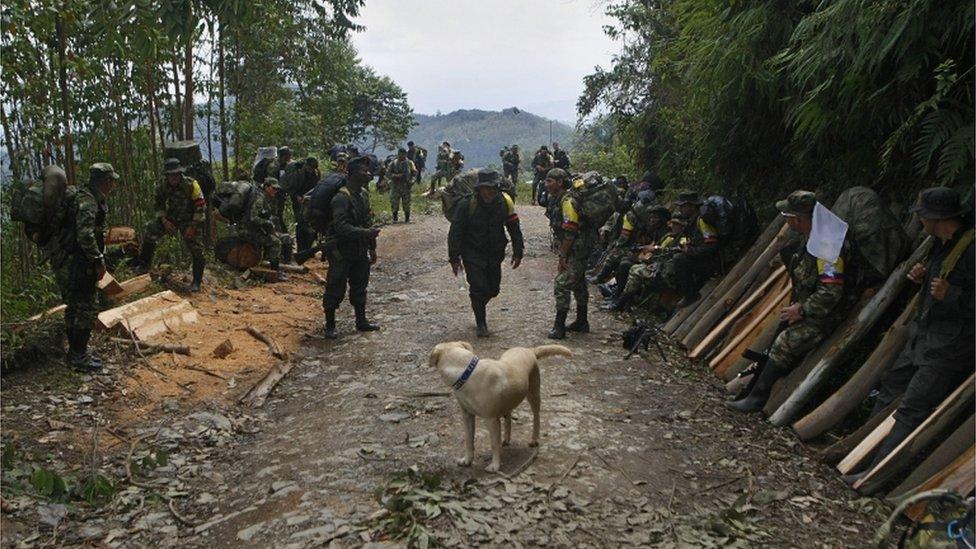
Members of Colombia's largest rebel group, the Revolutionary Armed Forces of Colombia (Farc), have embarked on what they say is their "final march".
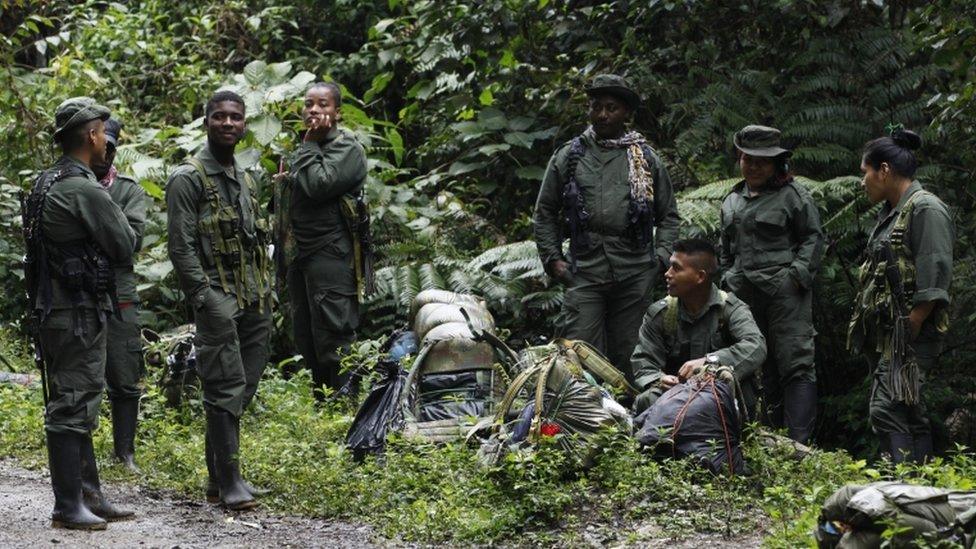
Farc negotiators signed a revised peace deal with the Colombian government on 24 November to put an end to more than five decades of armed conflict.
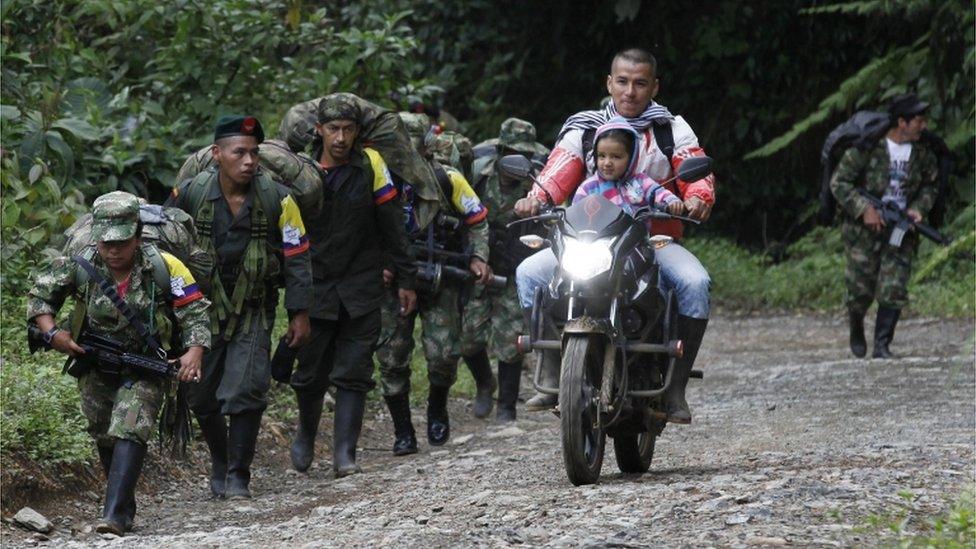
Under the deal, the Farc rebels agreed to leave their camps in the jungle and move into 26 transition zones where they will demobilise.
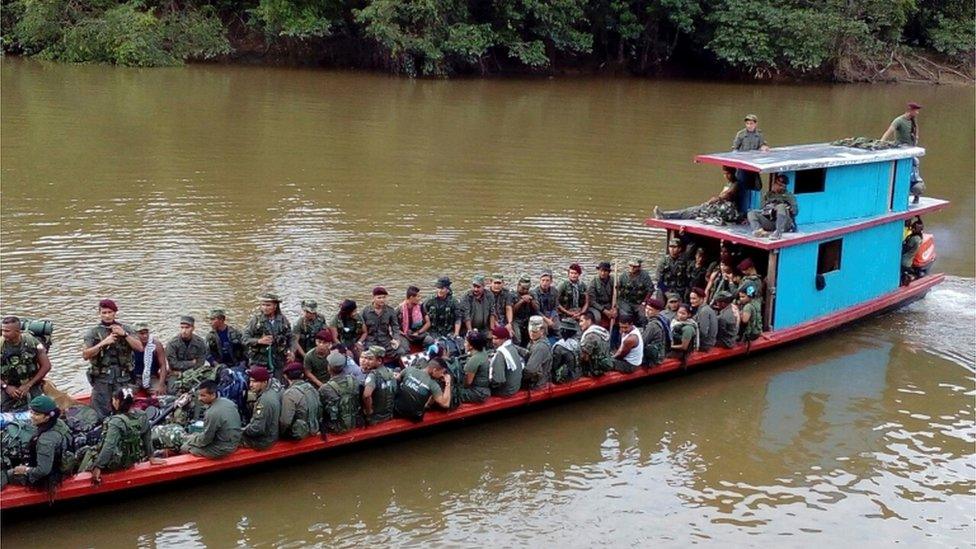
The logistics of moving 6,300 fighters to the zones were not easy.
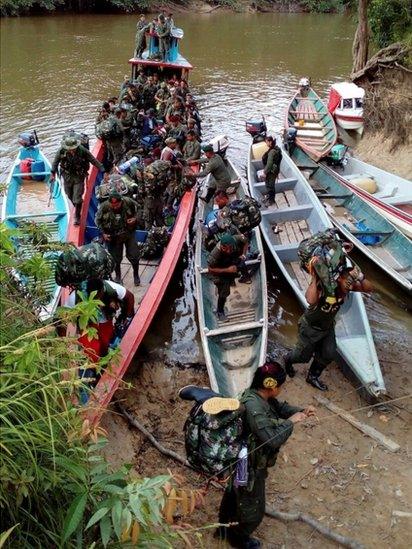
The government said it took 450 pickup trucks, 120 cargo trucks, 100 buses, 80 boats, 10 tractors and 35 mules to transport the rebels.
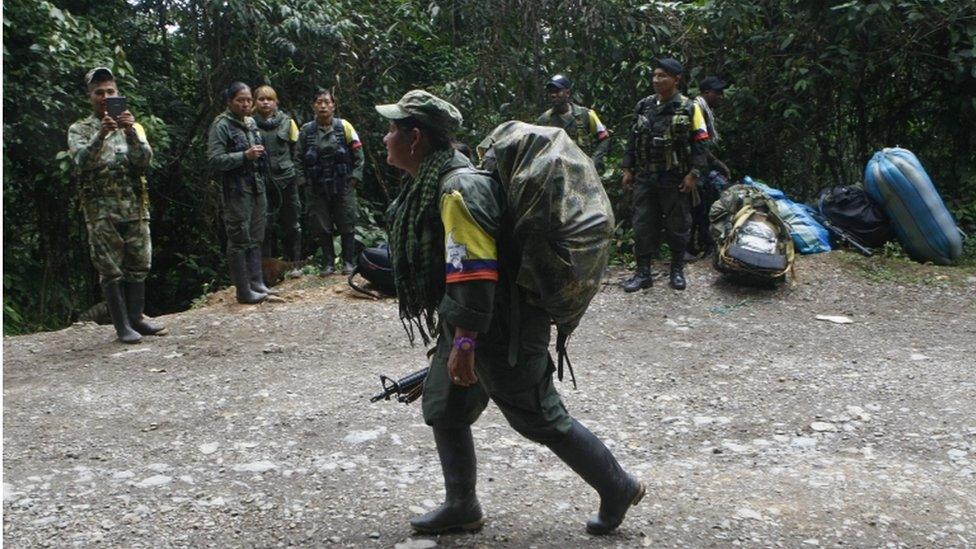
Many of them arrived on foot, with some of them posting pictures of themselves on social media under the hashtag #LasFarcCumplen (#FarcDelivers)
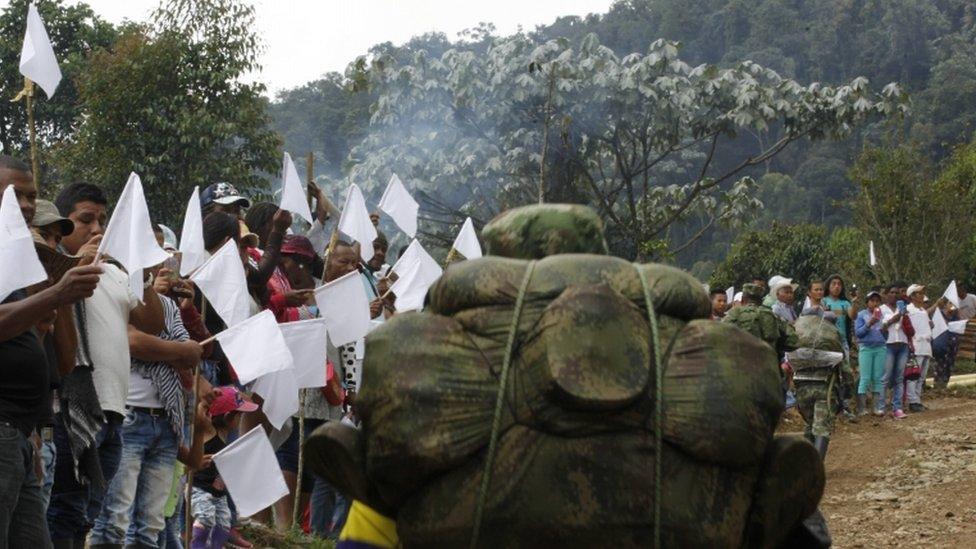
In one of the transition zones in Cauca province, the rebels were received by locals waving white flags
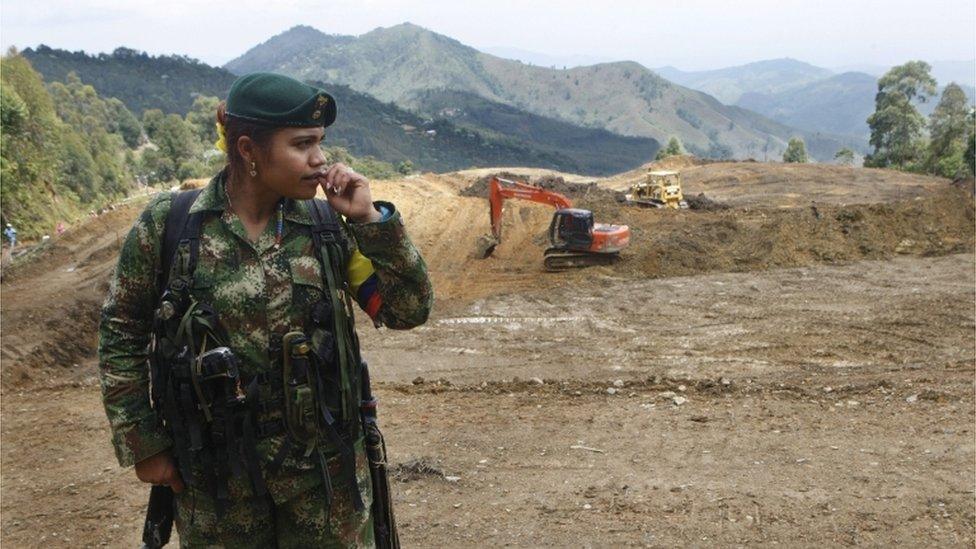
When the rebels arrived at the transition zones, they found that many of them had not been finished yet, prompting sarcastic tweets from some of them questioning whether they had gone to the right place. The government said it would try to speed up the work.
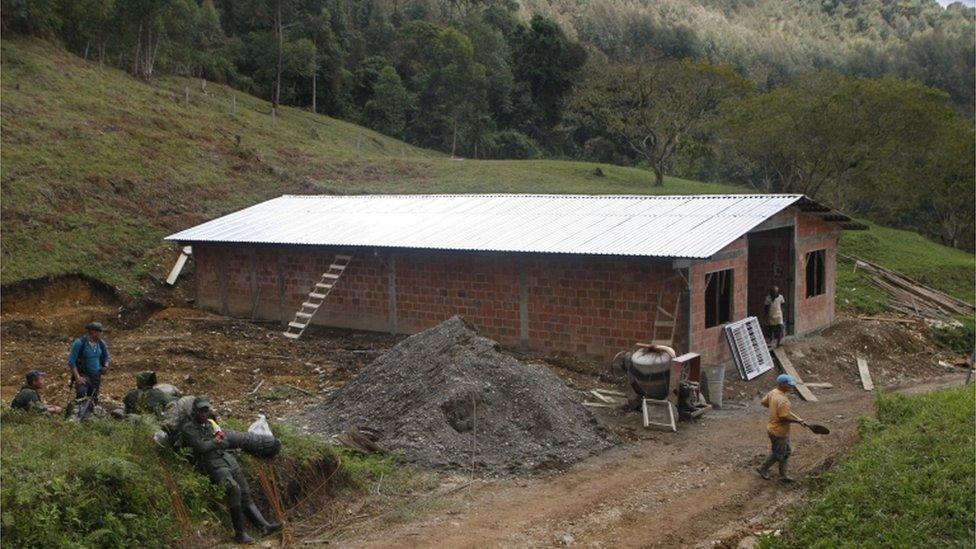
The rebels will stay in the transition areas for up to 180 days. There they will be registered, hand over their weapons and start their reintegration into civilian life.
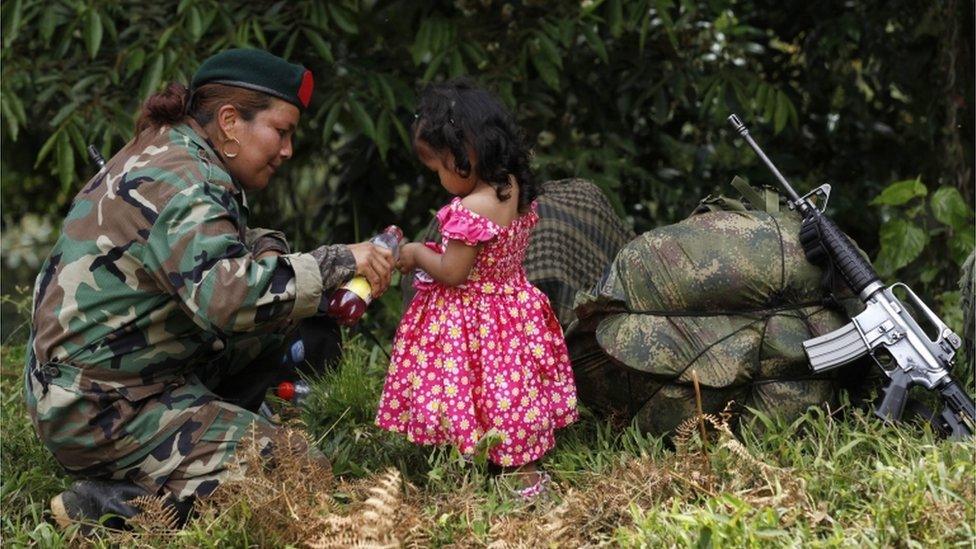
The last of the Farc's 6,300 fighters are expected to arrive in the transition areas by the end of Wednesday. Colombian President Juan Manuel Santos tweeted on Tuesday that "war with the Farc is now history".